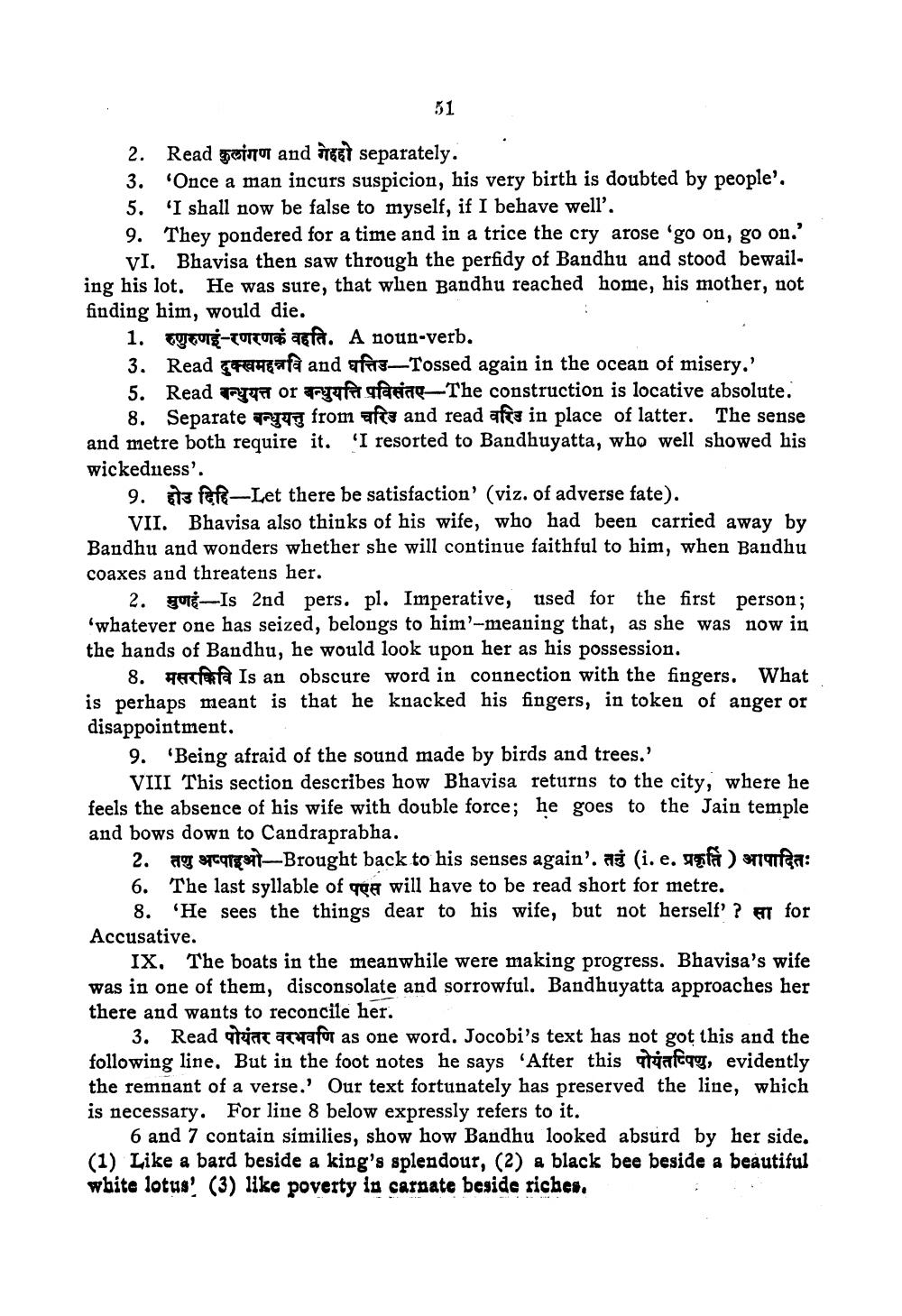________________
51
2. Read in and
separately.
3. 'Once a man incurs suspicion, his very birth is doubted by people'. 5. 'I shall now be false to myself, if I behave well'.
9.
They pondered for a time and in a trice the cry arose 'go on, go on." VI. Bhavisa then saw through the perfidy of Bandhu and stood bewailing his lot. He was sure, that when Bandhu reached home, his mother, not finding him, would die.
1. रुणुरुणई- रणरणकं वहति A noun verb.
3. Read gafa and afa-Tossed again in the ocean of misery.'
5. Read बन्धुयत्त or बन्धुयत्ति पविसंतर— The construction is locative absolute. 8. Separate from afte and read aft in place of latter. The sense and metre both require it. 'I resorted to Bandhuyatta, who well showed his wickedness'.
9.
ff-Let there be satisfaction' (viz. of adverse fate).
VII. Bhavisa also thinks of his wife, who had been carried away by Bandhu and wonders whether she will continue faithful to him, when Bandhu coaxes and threatens her.
2.
u-Is 2nd pers. pl. Imperative, used for the first person; 'whatever one has seized, belongs to him'-meaning that, as she was now in the hands of Bandhu, he would look upon her as his possession.
8. ffa Is an obscure word in connection with the fingers. What is perhaps meant is that he knacked his fingers, in token of anger or disappointment.
9. 'Being afraid of the sound made by birds and trees.'
VIII This section describes how Bhavisa returns to the city, where he feels the absence of his wife with double force; he goes to the Jain temple and bows down to Candraprabha.
2. तनु अप्पाइओ - Brought back to his senses again'. तनुं (i. e. प्रकृति ) आपादितः 6. The last syllable of a will have to be read short for metre.
8. 'He sees the things dear to his wife, but not herself' ? for Accusative.
IX. The boats in the meanwhile were making progress. Bhavisa's wife was in one of them, disconsolate and sorrowful. Bandhuyatta approaches her there and wants to reconcile her.
3. Read it for as one word. Jocobi's text has not got this and the following line. But in the foot notes he says 'After this fag, evidently the remnant of a verse.' Our text fortunately has preserved the line, which is necessary. For line 8 below expressly refers to it.
6 and 7 contain similies, show how Bandhu looked absurd by her side. (1) Like a bard beside a king's splendour, (2) a black bee beside a beautiful white lotus' (3) like poverty in carnate beside riches.




